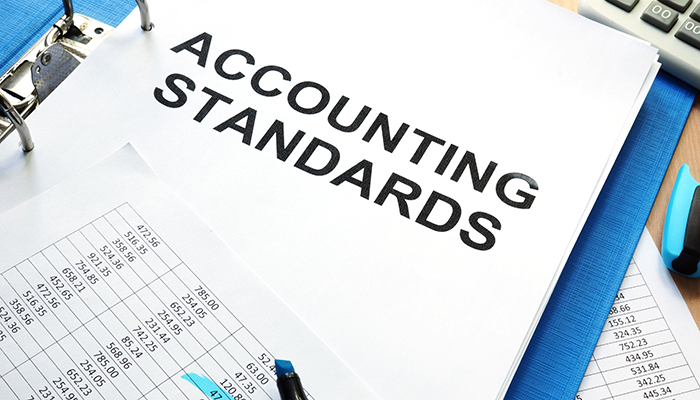On October 1, ahead of the upcoming annual meetings of the IMF and World Bank in Bali, Indonesia, the IMF Managing Director, Christine Lagarde gave a speech titled ‘Steer, don't drift’: managing rising risks to keep the global economy on course.
In her speech Lagarde identified a number of challenges facing the world economy, including “guarding against fiscal and financial turbulence” and “rebuilding trust in policymaking and institutions”, and with the key message “that we need to manage the risks, step up reforms, and modernise the multilateral system.”
And, per title of her speech “we need to steer the boat, not drift!”.
Lagarde sees the need to steer towards a number of destinations, some of which sit squarely in the field of public financial management: creating more fiscal space by “reducing government deficits and placing public debt on a gradual downward path”; “improving the management of … public assets”; and “rebuilding trust in institutions and policymaking”.
There is much to agree with in her speech, but what is missing, especially in relation to PFM destinations, is the quality of the steering mechanisms.
It has been noted: “Boaters generally pay little attention to their boat’s steering system, as long as it does the job without excess friction or play, but as our boats age, the steering system may need replacement.”
The information used to steer a financial ship is produced by the accounting system, and for most governments those systems need replacement.
Without high quality and timely financial information governments cannot be sure where they are, where they are heading, and whether they are on course.
Put another way, if cash flows and debt are how fiscal performance and position are calculated, there is “excess friction and play”.
This can be hugely reduced through the use of accrual-based measures for specifying fiscal objectives, developing budgets, specifying appropriations, and monitoring in-year and reporting end of year performance and position.
As the IMF asserts inits Government Finance Statistics Manual, these measures provide a more comprehensive measure of fiscal position than do cash flows and debt, and also provide markedly better information for decision-making purposes.
If you want to manage assets better, for example, you need good information on exactly what you own, where it is, its condition and value.
This is what a good accounting system tells you.
If you want to know your fiscal position, your balance sheet tells you. And if it is audited, you can have greater trust in it.
Certainly greater trust than in a set of discounted cash flows which are subject to almost continuous change, and in many cases describe a situation which necessarily must be avoided – what is in fact little more than an unacceptable scenario.
And if the balance sheet is reported against the budgeted balance sheet, you have a better gauge of actual performance, and accountability is stronger.
These things sound simple and obvious, but globally very, very few governments run their financial management systems in this way.
In order for governments to actually manage the risks Lagarde refers to, they need information that is timely, granular, reflective of economic reality and used in making decisions both large (fiscal aggregates) and small (operational).
This would require that the steering system in government had tight linkages and little “play”, that is to say, modern financial control systems.
Evidence that the steering system in governments has “excessive friction or play” is everywhere.
In the US many state and local governments face fiscal stress on account of poor accounting for and management of pension obligations.
The US Federal Government cannot get an audit opinion, because the information in support of the statements is insufficiently reliable, with more than 40 material weaknesses in its internal control system.
Its budget process is chaotic and dysfunctional. In Europe many governments have levels of debt which greatly exceed the Maastricht maximum of 60%, and will hamper their ability to respond when the next crisis occurs.
The United Kingdom government’s financial position has deteriorated alarmingly since the financial crisis – since it started publicly reporting its net worth (in 2010) its position has worsened from approximately £1.2 trillion negative to £2.4 trillion negative.
Germany, the European stand-out, may have seen its “debt-clock” reverse earlier this year, for the first time, but it still has debt in excess of the Maastricht criterion and it chooses to account in a way which ignores such items as its public service pension liabilities and its share of costs associated with the huge debt concessions made to Greece.
In Nigeria, the auditor-general finds the state-owned Nigerian National Petroleum Corporation is short, by $16 billion, in transferring oil revenues to the Government.
Argentina has defaulted on its sovereign debt eight times, most recently in 2014, while in Brazil, in the same year, the “car wash” scandal involving state oil company Petrobrasstarted, and in the period since the President, DilmaRousseff has been impeached for illegal budget actions.Japan, with the highest public debt in the developed world, has recently shelved its plans to achieve budget balance by 2020/21.
Australia, after eliminating its debt and deficit ahead of the financial crisis, has since then again been plagued by both.
These are just some headline failures.
There are many more.
These examples result from poor financial management, decision-making and control.
An essential requirement to address these issues is good information – information that can portray accurately and reliably current financial position (that is all assets and liabilities, as well as net worth) as well as current financial performance (revenues, expenses and surplus or deficit).
The accounting system provides this information, as well as, with accrual budgeting, providing the financial control necessary to move from the current position to the planned destination.
It is the steering equipment.
Poor accounting and public financial management also facilitate corruption, something Lagarde correctly sees as undermining trust. Corrupt acts are far easier when there is excessive “play” in the system.
But trust will always be undermined where governmental institutions cannot, or do not, demonstrate such basic requirements of managerial competence as producing comprehensive budgets (reflecting all resource flows, not just cash), good in-year financial monitoring, and auditable financial statements.
Lagarde concludes by asking “So what can be done?”
Her answer includes that “We certainly need a 21st-century education system” and the release at the Annual Meetings of the Bali Fintech Agenda, a “blueprint for policymakers who are seeking manage new risks, while harnessing fintech potential for the benefit of all”.
I would add: We also need 21st-century accounting and public financial management systems, which harness the potential of fintech, but more importantly are built on the centuries old technology of accrual accounting.















